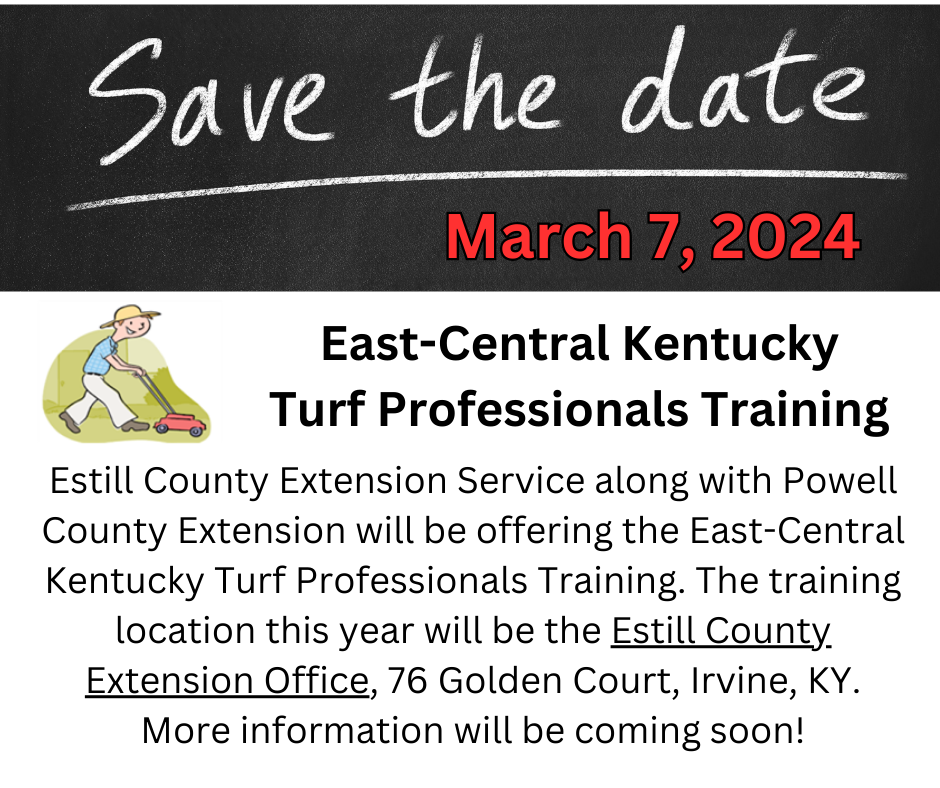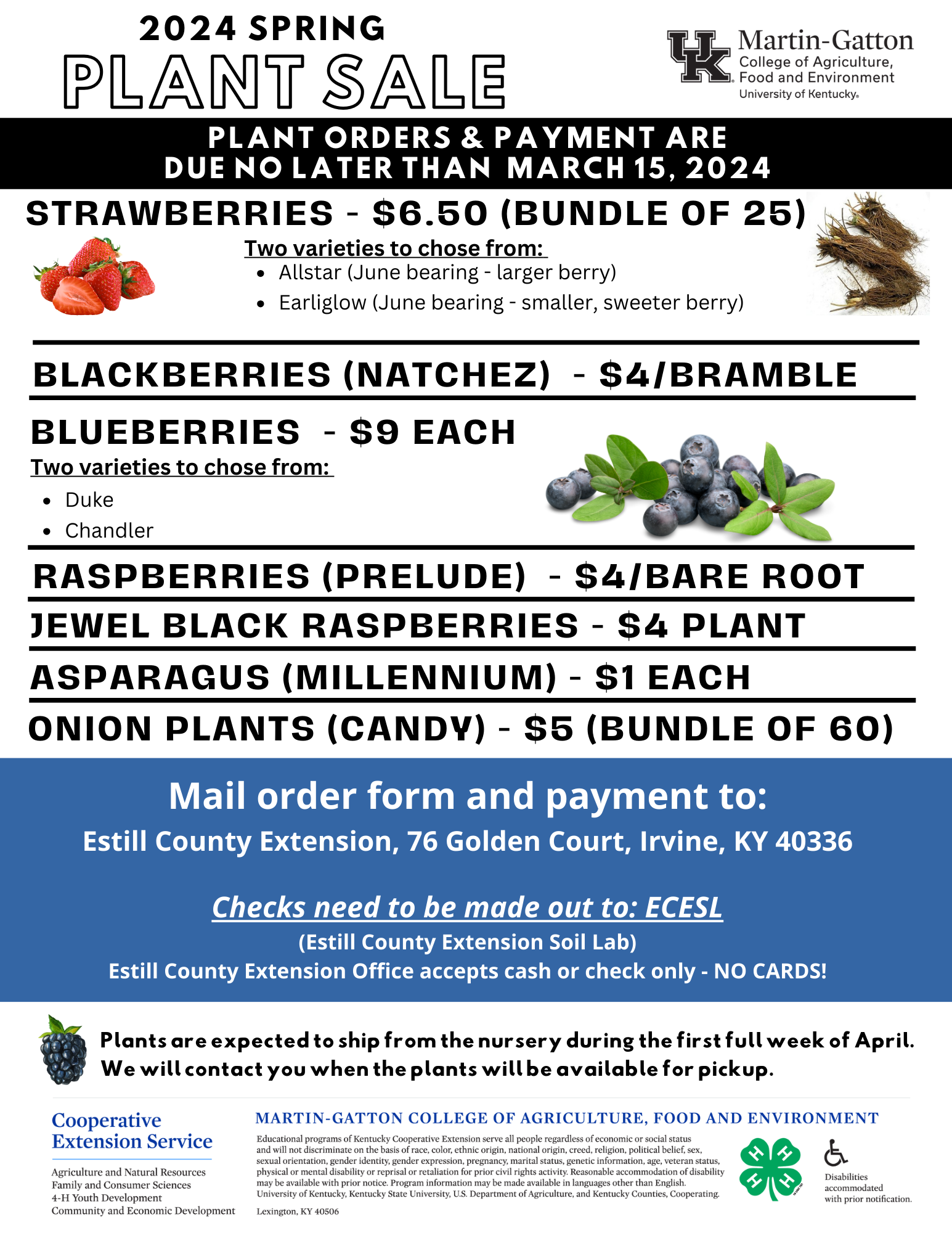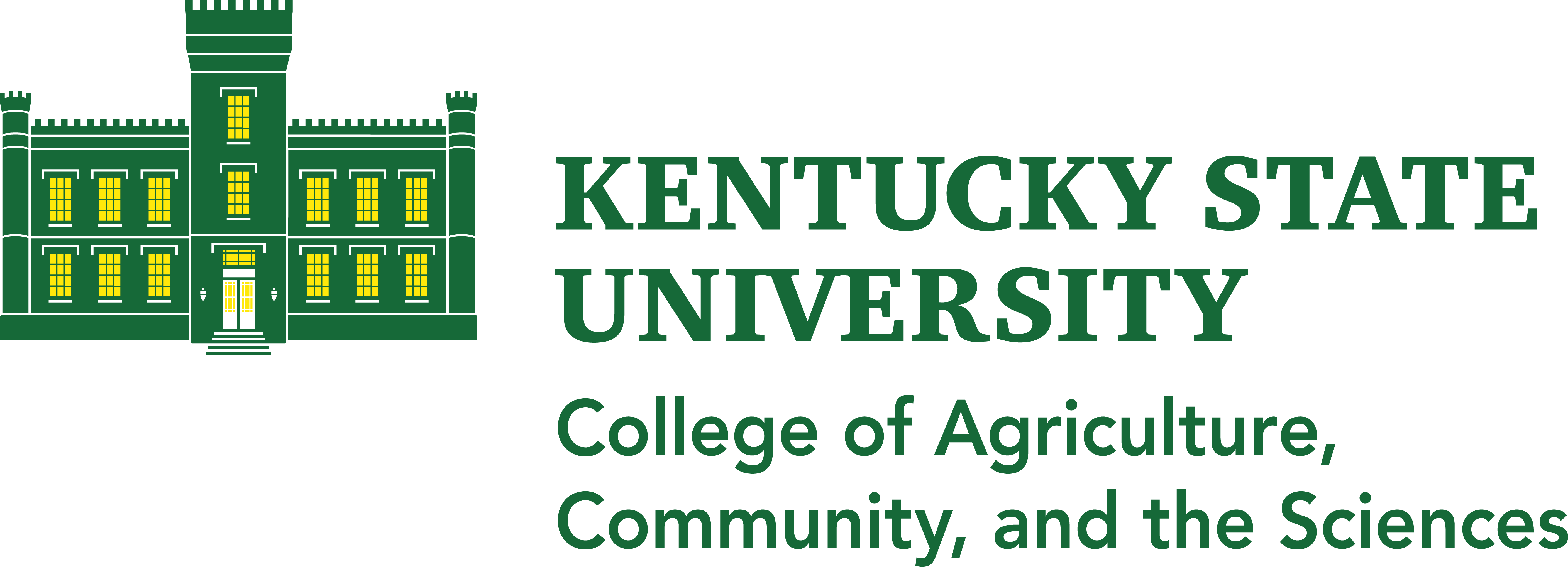Estill County Farm Scoop
February 2024 Edition
Agriculture & Natural ResourcesView Newsletter
Share this Newsletter
Additional Newsletters
Preview This Newsletter
Estill County Farm Scoop
Agriculture & Natural Resources - February 2024
Starting Seeds in Winter
When you consider how seeds germinate in nature, it makes sense to sow seeds the same way. In late summer, left to their own devices, seeds fall to the ground. They slowly get covered with leaves and other natural materials to begin their long winter in the soil. Exposure to cold temperatures and moist conditions breaks dormancy and the seeds germinate when temperatures increase in the spring. Winter sowing is the process of planting seeds outdoors in a container during the winter months. The container remains outdoors until the seedlings emerge in the spring. The container protects the seeds from animals and harsh weather, but the exposure to colder temperatures. The container protects the seeds from animals and harsh weather, but the exposure to colder temperatures breaks dormancy and the seeds germinate. The container also provides an ideal environment for germination in the spring. Winter sowing is ideal for some annuals, perennials, and wildflowers. Check out a seed catalogue: most will have some sort of notation about a seed's germination requirements. Look for seeds that are described with the following terms: reseeds; colonizes; self-sows; hardy seeds; seedlings can withstand frost; sow outdoors in late autumn or early winter; sow outdoors in early spring while frosts may still occur; needs pre-chilling; requires stratification. For more information, visit https://extension.psu.edu/starting-seeds-in-winter or call the Estill County Extension Office.
/s/ Emma Lee
County Extension Agent for Agriculture & Natural Resources
Estill County Beef Producers & Cattlemen's Meeting
The next Estill County Beef Producers/Cattlemen's meeting will be on Monday, February 12, 2024 at 6:00 p.m. at the Estill County Extension Office, 76 Golden Court, Irvine, KY 40336. Kenny Burdine, UK Agriculture Economics Specialist will be speaking about Livestock Risk Protection plans. A meal will be provided. Let us know you will be attending no later than February 5th. Contact the Estill County Extension Office at 606-723-4557.
Attention Cattlemen
If you are not getting the phone call reminders for meetings every month, or would like to update your contact information, please let us know as soon as possible. Call us at (606)723-4557 to update your information.
Educational programs of Kentucky Cooperative Extension serve all people regardless of economic or social status and will not discriminate on the basis of race, color, ethnic origin, national origin, creed, religion, political belief, sex, sexual orientation, gender identity, gender expression, pregnancy, marital status, genetic information, age, veteran status, or physical or mental disability.
To file a complaint of discrimination, contact Tim West, UK College of Agriculture, 859-257-3879; Terry Allen or Patty Bender, UK Office of Institutional Equity and Equal Opportunity, 859-257-8927; or the USDA, Director Office of Civil Rights, Room 326-W Whitten Bldg., 14th & Independence Ave. SW, Washington, DC 20250-9410 (202-720-5961).

Estill County Cooperative Extension 2024 Rootstock Order Form
Deadline to order rootstock is Friday, January 26, 2024.


Unveiling the secret garden: University of Kentucky researcher finds winter annuals can save honey bees
Source: Jordan Strickler
Lexington, Ky.—
Honey bees, vital pollinators in our ecosystem, are currently facing a significant decline. This drop is causing concern for beekeepers and the agriculture sector. Under the guidance of University of Kentucky Martin-Gatton College of Agriculture, Food and Environment Department of Entomology researcher Clare Rittschof, a team of scientists embarked on a study in understanding and potentially mitigate this issue. Their research, published in Agriculture, Ecosystems and Environment, focused on a critical time for honey bees — the late-winter and early-spring periods, when honey bee colonies come out of their winter dormancy, and need for adequate nutrition is peaking. The hypothesis centered on winter annuals, plants often disregarded as mere weeds in fallow crop fields. The team postulated these could be an untapped resource, providing essential nutrition to honey bees during this vulnerable period. To test this hypothesis, the researchers established honeybee colonies near various fields, some abundant with winter annuals and others devoid. “Winter annuals, commonly dismissed as weeds, are actually a treasure trove of nutrition for honey bees during the critical late-winter and early-spring period,” Rittschof said. “This time is vital for the health and growth of bee colonies. "The methodology involved close measures of colony growth, health and productivity. Rittschof scrutinized key factors such as colony size, honey quantity and immune-system strength. In parallel, the team conducted an in-depth field analysis of the winter annuals. They aimed to quantify the plant abundance in predicting colony growth. Rittschof said the results were both revealing and encouraging. The honeybee colonies, positioned near fields rich in winter annuals, displayed more robust growth and stronger immune responses than those near fields lacking these plants. This finding was a significant indicator of winter annuals’ positive impact on honeybee colonies. “Winter annuals presence in fallow croplands significantly boosted honeybee colonies' growth and immune response,” Rittschof said. “It’s a clear indication that what we consider weeds can actually be beneficial for these crucial pollinators." Rittschof elucidated that an interesting facet was the variation in benefits across different “Fallow croplands, particularly those previously used for cultivating crops like corn and soybeans, were identified as the most beneficial for the bees,” she said. “These fields typically exhibited a higher density of winter annuals, providing a richer and more diverse food source for the honeybee colonies.” The implications extend into the broader spectrum of agricultural practices.
Farmers can play a pivotal role in supporting honeybee populations by allowing winter annuals to grow in their fallow fields during winter. This practice supports the conservation of bees, contributing positively to soil health and erosion control.
Moreover, the research highlights the potential for adjusting agricultural practices to be more bee-friendly. For instance, cropland weed-control timing measures could be optimized to benefit honeybee populations. Such adjustments could represent a step towards more sustainable and environmentally conscious farming practices. While offering valuable insights, the study also opens avenues for further research. "There’s still much to explore,” Rittschof said. “We need to delve deeper into which winter annuals are most beneficial for bees and how we can incorporate the growth of these plants into modern farming practices without affecting crop yield. It's an exciting and crucial field of study that has the potential in reshaping our agricultural landscape." This material is based upon work that is supported by the National Institute of Food and Agriculture, U.S. Department of Agriculture, under award number 2017-0817-1406. Any opinions, findings, conclusions or recommendations expressed in this publication are those of the author(s) and do not necessarily reflect the view of the Department of Agriculture.
Lunch and Learn: Feeding Birds in Winter
January 30th at 12 PM
Estill County Extension Office, 76 Golden Court, Irvine
Join ANR agent, Emma Lee, to learn more about feeding backyard birds during the winter season. This class will include catered lunch from McAlister’s. Call (606) 723-4557 and sign up by January 26th if you would like to attend!

